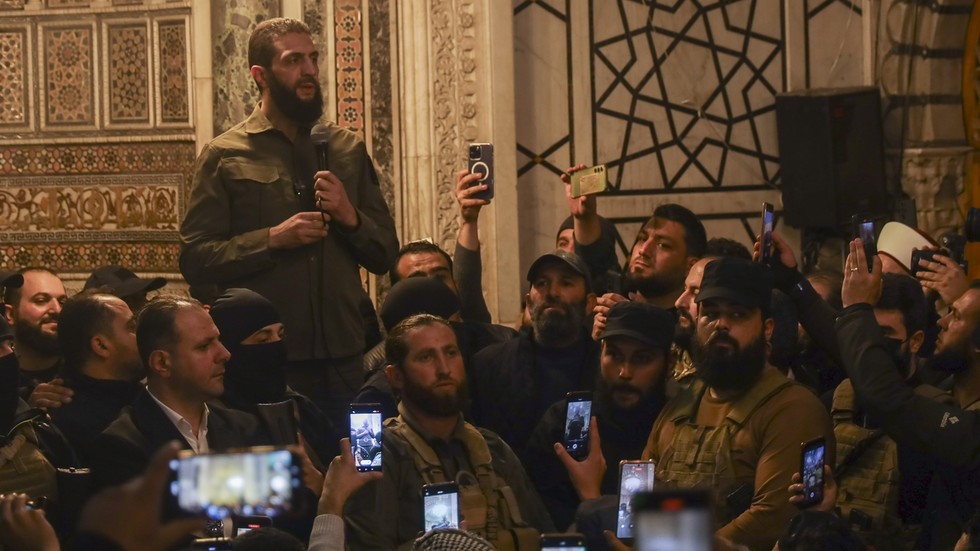The recent diplomatic developments between the United States and Syria mark a significant shift in U.S. foreign policy in the region. Following a surprising military offensive by opposition forces led by Hayat Tahrir al-Sham (HTS) that resulted in the capture of several major cities, including Damascus, the situation in Syria underwent a drastic transformation. As a consequence of these changes, Syrian President Bashar Assad resigned and sought asylum in Russia. In this evolving context, Barbara Leaf, the U.S. Assistant Secretary of State for Near Eastern Affairs, led a delegation to Syria—the first visit by American diplomats since the U.S. embassy’s closure in 2012. The meeting aimed to engage with the newly emerging leadership and address critical concerns regarding terrorism and the protection of minority and women’s rights.
During the discussions, Leaf highlighted the incoherence of maintaining a bounty on the head of HTS leader Ahmed Hussein al-Sharaa, better known as Abu Mohammad al-Julani, while simultaneously engaging in dialogue with him. The U.S. had previously offered a $10 million reward for information leading to al-Julani’s capture, but Leaf announced that this bounty would no longer be pursued as part of a broader policy shift that seeks to legitimize engagements with groups like HTS. The U.S. remains steadfast in its designation of HTS as a foreign terrorist organization, which means sanctions on the group are still in effect, yet the decision reflects a tactical recalibration aimed at fostering cooperative relationships with key actors in Syria.
In addition to counter-terrorism discussions, the U.S. delegation addressed the issue of missing American journalist Austin Tice, who disappeared in Syria in 2012. The inclusion of representatives dealing with hostage affairs indicates that the U.S. aims to pursue various dimensions of engagement, particularly in restoring ties with the new Syrian authority while placing pressure on terrorist elements in the region. The U.S. military presence in Syria has also expanded, having reportedly doubled its troops to around 2,000, in anticipation of potential threats posed by the Islamic State amid the ongoing unrest. Airstrikes targeting key IS leaders in northeastern Syria underscore the U.S. commitment to countering terrorism during this tumultuous period.
One of the more critical outcomes of this diplomatic engagement is the potential for future diplomatic recognition of the new Syrian authorities. While an immediate reopening of the U.S. embassy in Damascus is not currently planned, Leaf emphasized that the actions of the new leadership in Syria would heavily influence the U.S.’s stance on recognition. This reflects a pragmatic approach whereby the U.S. is willing to engage with the complexities of the Syrian landscape, provided these new leaders demonstrate a commitment to stability and the rights of various groups within the country. This strategic pivot indicates a U.S. desire to influence the trajectory of Syria’s governance in a post-Assad era.
Despite the shifting dynamics and the U.S. negotiating with a group on its terrorist list, there remains a cautious approach toward balancing strategic interests and ethical implications. The U.S. administration needs to navigate the challenges of engaging with partners who previously stood at odds with its key national security policy objectives. This complexity further emphasizes the importance of establishing a coherent and effective diplomatic strategy that effectively addresses terrorism while fostering stability in a war-torn nation.
Ultimately, the developments signify a pivotal moment for U.S.-Syrian relations, indicating an openness to dialogue with formerly designated terrorist organizations when it serves national and regional stability. The decision not to pursue the bounty reflects a practical orientation toward building relationships in the context of geopolitical shifts rather than adhering rigidly to past policies. As stakeholders assess the ramifications of this engagement, it will be essential for the U.S. to maintain a focus on ensuring that counter-terrorism efforts remain effective while fostering a political environment conducive to lasting peace and security in Syria.

